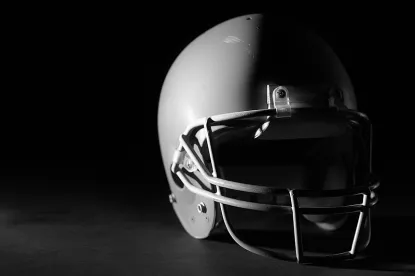Reacting to growing concerns about brain trauma, the eight Ivy League football coaches have added to the Ivy League’s restrictive rules limiting contact during spring and preseason practice by unanimously voting to eliminate all full contact drills from regular season practices. The formal adoption of the decision is anticipated during an upcoming vote of the Ivy League’s athletic directors, policy committee members, and university presidents.
The Ivy League’s new “no-contact practice rule” was introduced to the world of college football by Dartmouth College Head Coach Buddy Teevens in 2010.
Despite initial hesitancy by his coaching staff and players, Teevens eliminated player vs. player contact by forcing his players to hit pads and tackling dummies, instead of each other. Teevens, defending his plan and responding to criticism of his new policy, said, “At this stage of their careers, these guys know how to hit and take a hit. People look at it and say we’re nuts. But it’s kept my guys healthy.”
The effect of Teevens’ restrictions on full contact practices has been dramatic. The number of concussions sustained by the Dartmouth team has been reduced to a minimal number, from approximately 20 concussions per season before the full contact practices were eliminated. Noting that other injuries also have been reduced, Teevens stated, “[T]he number of neck, back and shoulder injuries has also declined noticeably.”
Stressing that his team still practices tackling between 500 and 800 times a year with its drills, Teevens observed his squad has actually improved its tackling skills by focusing on the art of tackling to avoid head collisions. “Our level of play hasn’t been hurt….[I]t’s actually made us a better team,” Teevens said. Dartmouth’s recent performance supports this opinion. In the past three seasons, Dartmouth has finished third and second in 2013 and 2014. The team earned a 9-1 record and shared the Ivy League football championship with perennial champion Harvard and Pennsylvania in 2015.
While the collective bargaining relationship between the NFL and its players has resulted in the forced limit of only14 full contact practices during the leagues schedules 17 game schedule and the NCAA has limited full contact practices to two per week during the season, neither has reached the protection levels established by the Ivy League.
The Ivy League’s eight members, Brown, Columbia, Cornell, Dartmouth, Harvard, Pennsylvania, Princeton, and Yale, are clearly trendsetters in the standard for player safety.
As Robin Harris, Executive Director of the Ivy League, concluded, “We’re not trying to change the nature of the game, we’re just trying to make it safer.”




 />i
/>i

